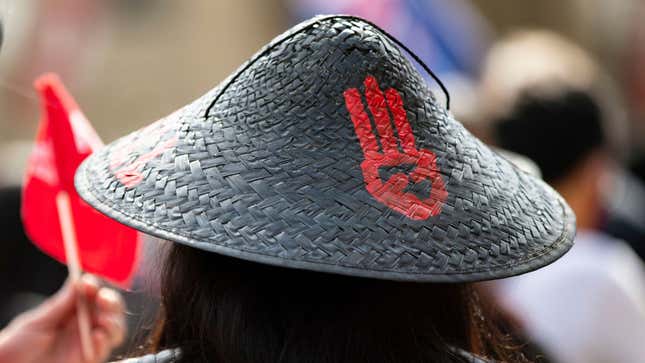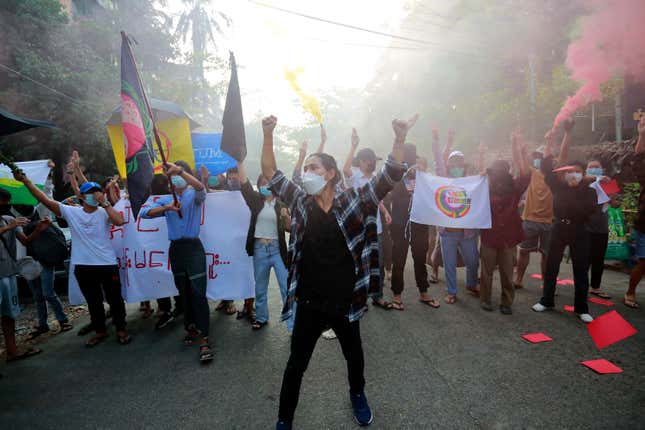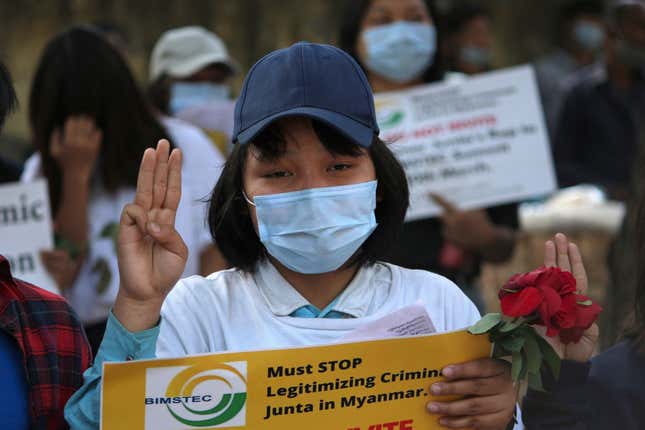Burmese Women Protesting the Military Coup Are Having Their Sex Tapes Leaked
Pro-military doxxers on the social media platform Telegram are literally exposing the women criticizing the military takeover in Myanmar.
EntertainmentEntertainment

As Myanmar enters the third year of its military coup, violence against protesters has continued to grow both in volume and violence. Since the country’s army, the Tatmadaw (led by General Min Aung Hlaing), overthrew its civilian-led government on February 1, 2021, over 2,460 people have been killed and more than 12,900 people remain in detention for protests against the military regime. A new CNN report digs into how doxxing, specifically, is being used to humiliate dissenting individuals—predominantly women—into silence.
Multiple analyses reveal that pro-military accounts on the social media platform Telegram—most of which are run by men—are publishing women’s private online sexual content (like photos and videos) in an attempt to “punish” them for their pro-democracy views, or support of Myanmar’s shadow government, the National Unity Government (NUG), and the People’s Defense Force (PDF), an armed resistance. Beyond the risk of societal shame and stigmatization, the release of these women’s private information also makes them more susceptible to arrest by military forces.
One 25-year-old woman who went by the alias Chomden told CNN that a video of her having sex with an ex-boyfriend circulated on one of Telegram’s public forums shortly after she shared social media videos of dissenters in the summer of 2021. “The whore who is having sex with everyone and recording it in HD… Know your position, slut!” the caption read. It also included her name and Facebook profile photo.
-

-

-

-

-

-

-

-

-

-

-

-

-

-

-

-

-

-

-

-

-

-

-

-

-

-

-

-

-

-

-

-

-

-

-

-

-

-

-

-










































